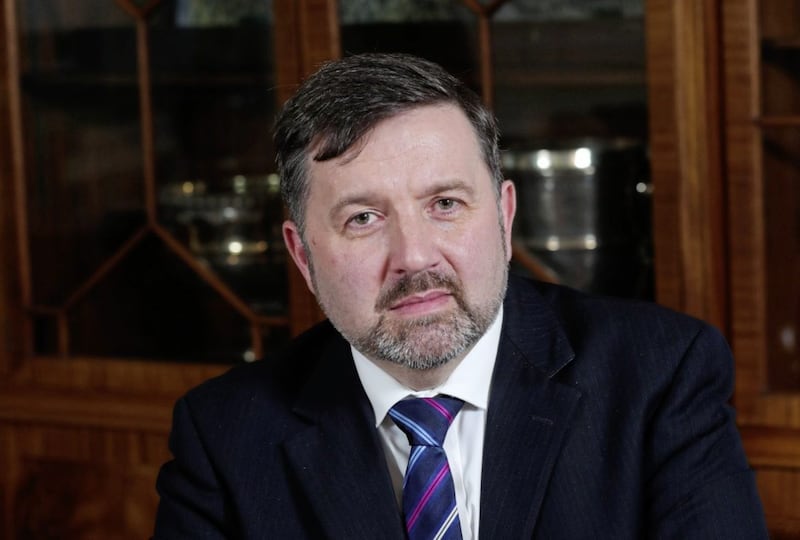Northern Ireland could see up to 3,000 deaths from coronavirus in a 'worst-case scenario', expert modelling has suggested.
Health minister Robin Swann today said the north will experience the peak of its first wave of coronavirus cases between April 6-20.
Once restrictions on movement are lifted, we will see a second wave of cases later in the year.
He said that in a worst-case scenario, 3,000 people could die over 20 weeks of a coronavirus epidemic.
Map of global Covid-19 cases by John Hopkins University:
The figures are based on the assumption that the lockdown will continue for the foreseeable future.
At the peak of the epidemic, 500 people a week would be admitted to hospital with the virus.
The first wave would see 180 patients needing ventilation and critical care beds.
Those figures are based on worst-case assumptions that 70% of people with coronavirus symptoms will stick to self-isolation and that social distancing measures will cut people's contact with others by two-thirds.

Mr Swann said if the modelling figures are roughly correct, then there is a good chance the health service could cope.
“In summary, the research indicates that our health service would have a realistic prospect of coping in this initial period if a sufficient proportion of the population adhere to the social distancing and self-isolation measures,” he said.
“However, it is important that this is considered in context, and I would emphasise that it provides no grounds whatsoever for dropping our guard. On the contrary, the projections underline that the continuation of rigorous social distancing will save many lives and protect our health service from collapse.
“Even then, a reasonable worst case scenario would involve significant loss of life In Northern Ireland.
“In addition, the absence of a vaccine means we will have to plan for a potential second wave of Covid-19 cases later in the year.”
The team behind the modelling figures said they are not a forecast and are for planning purposes only.
“It is assumed that current restrictions remain in place for the foreseeable future," they said.
"When the current restrictions are relaxed, there will be a second wave.
"Future modelling will focus on the size and shape of this depending on how/when restrictions are relaxed or re-introduced.
"This will remain the case until there is substantial population immunity either as a result of recovery from infection or successful vaccination.”
Stormont First Minister Arlene Foster said the potential loss of 3,000 lives during the first wave of the virus was a "sobering" statistic.
"The death toll would be about 500 people short of the lives lost during the Troubles.
"The loss of each of those lives is a huge blow, not only to their families, but of course to the communities from which they come from.
"In a small tight-knit society like ours we are all likely to know someone who will be impacted, and it will be a cruel blow and we will need to do everything we can to comfort and support their relatives, and indeed each other, in the difficult weeks and months ahead."
Deputy First Minister Michelle O'Neill said the modelling was alarming.
"People will be concerned, it's a scary prospect for all of us but particularly for those older people and people who are vulnerable."
China's official representative in Belfast is donating 10,000 face masks and further supplies of protective equipment are arriving from the country, Mrs O'Neill said.
Professor Ian Young, Stormont's Department of Health chief scientific adviser, said the modelling was not a prediction but a description of a scenario that might happen.
"We all have the ability to influence the events to come," he said.
Data is not yet available on how well people are adhering to social distancing rules.
Prof Young said he expected the first wave of the epidemic to peak around April 13.
A possible worst-case scenario would see 180 people needing to be ventilated and up to 500 admitted to hospital during the busiest week.
Prof Young said: "Once you relax restrictions it is almost inevitable that there will be a recurrence of the virus and that will occur until a substantial proportion of the population have immunity."
Immunity is built up through having had the infection or receiving a vaccine, which is still in development.
He said no decisions had been made about when social distancing recommendations will be relaxed.
"We will be looking carefully at the likely impact of relaxing those recommendations, either singly or as a group."
He said officials would be "monitoring very closely" the course of the infection.
Mrs Foster said she and the Deputy First Minister wanted to see more testing, adding: "Our priority is to save lives."








